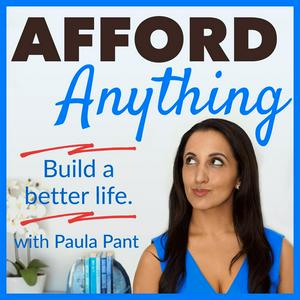#691: Your IQ used to be your biggest career asset.
Then AI scored in the 99th percentile on the LSAT, the SAT, and the MCAT — and suddenly the cognitive skills that once set you apart became something anyone can access for free.
Executive coach Liz Tran joins us to talk about what actually drives career success and earning power now.
Her answer: AQ, or agility quotient — your capacity to handle change, learn new skills fast, and keep moving when your industry shifts beneath you.
The personal finance implications are real. The average half-life of a technical skill is five years. In tech, it's closer to two. That means the expertise you spent years building — and the salary that came with it — can become obsolete faster than a mortgage term.
Tran argues the people who protect their earning power long-term aren't necessarily the most credentialed. They're the ones who can unlearn old ways and adapt quickly.
We walk through her four AQ archetypes — the neurosurgeon, the astronaut, the firefighter, and the novelist — each with a different default approach to change.
Knowing your type helps you understand where you might freeze up during a career pivot, a market downturn, or a high-stakes financial decision.
Tran points out that analysis paralysis, something many real estate investors and career changers know well, often comes down to archetype — and there are practical fixes.
We also cover her ABCD framework — anchors, bets, classroom, and discomfort — which maps out how to stay functional and decisive during volatile periods.
And we get into the six thinking hats theory, specifically how pairing black-hat (downside) thinking with green-hat (future-focused) thinking can sharpen any major financial or career decision.
Timestamps:
Note: Timestamps will vary on individual listening devices based on dynamic advertising run times. The provided timestamps are approximate and may be several minutes off due to changing ad lengths.
(00:00) Intro to AQ — agility quotient defined
(03:19) IQ vs. EQ vs. AQ — how the three differ
(04:09) Origins of IQ — born from industrialization
(04:41) Birth of EQ — rise of the knowledge worker
(05:01) Why AQ matters now — the tech revolution
(06:19) AI and IQ — cognitive skills are now commoditized
(07:51) Technical vs. durable skills — and why both matter
(10:48) Half-life of skills — technical skills expire fast
(13:41) Measuring durable skills — how to spot your gaps
(15:59) The four AQ archetypes — neurosurgeon, astronaut, firefighter, novelist
(25:08) Improving your weak spots — run toward discomfort
(30:59) The ABCD framework — four pillars of high AQ
(43:56) Anchors — people, places, routines that ground you
(54:25) Six thinking hats — six ways to approach any problem
(01:04:28) AQ is changeable — it's never too late to grow
Share this episode with a friend, colleagues, and your postal person: https://affordanything.com/episode691
Learn more about your ad choices. Visit podcastchoices.com/adchoices


